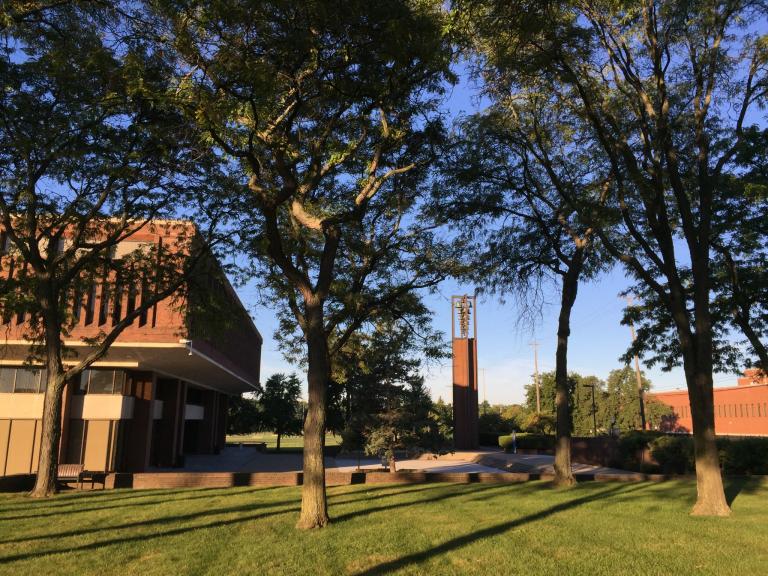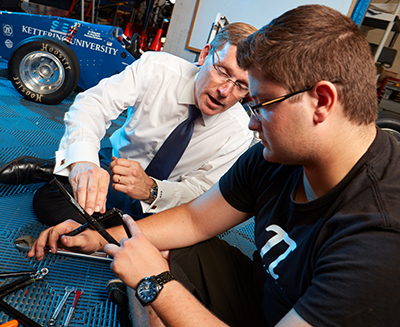
Kettering University has joined an esteemed multi-state consortium of universities, government agencies and advocacy groups to form the Smart Belt Coalition (SBC). The SBC is a collaboration that aims to help shape and inform the ongoing development of connected and automated vehicles.
“We are honored to participate in the Smart Belt Coalition to help create the future of mobility alongside some of the brightest minds and most creative organizations in the industry,” said Kettering University President Dr. Robert K. McMahan. “Researchers at Kettering are at the forefront of discovering the technologies, developing the infrastructure, and implementing the programs necessary to play a key role in creating the future of transportation and mobility.”
The SBC was formed to:
- Establish a high-profile, high-impact, and long-distance network of transportation innovations in connected automation.
- Support testing and deployment of various applications of connected and automated vehicles.
- Operate connected and automated applications on varying terrain during all weather conditions.
- Validate innovations across a diversity of urban and rural roadways.
- Share data for research and future deployment of technologies.
- Provide a forum for key transportation decision-makers.
- Seek joint funding opportunities for large-scale transportation research and implementation projects.
Kettering is joining the following organizations in Michigan, Ohio and Pennsylvania in the SBC:
Michigan: Kettering University, MDOT, the University of Michigan, Michigan State University, and the American Center for Mobility.
Ohio: The Ohio Turnpike and Infrastructure Commission, Ohio State University, and the Transportation Research Center.
Pennsylvania: The Pennsylvania Department of Transportation, the Pennsylvania Turnpike Commission, and Carnegie Mellon University.
Additionally, Kettering is one of eight universities around the world selected to participate in the Society of Automotive Engineers’ (SAE) AutoDrive™ Challenge – an international autonomous vehicle competition.
On campus, the GM Mobility Research Center is currently in Phase Two of construction. Phase One of the project included the construction of a state-of-the art brownfield water and runoff management systems, as well as the construction of a 3.25 acre test pad built to race track performance specifications on what was previously a 21-acre industrial brownfield. The site also includes stadium-style lighting, fencing and landscaping. Phase Two includes a comprehensive road course and a state-of-the-art mobility research building and is expected to be completed in early 2018.